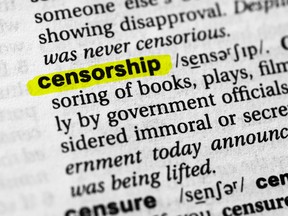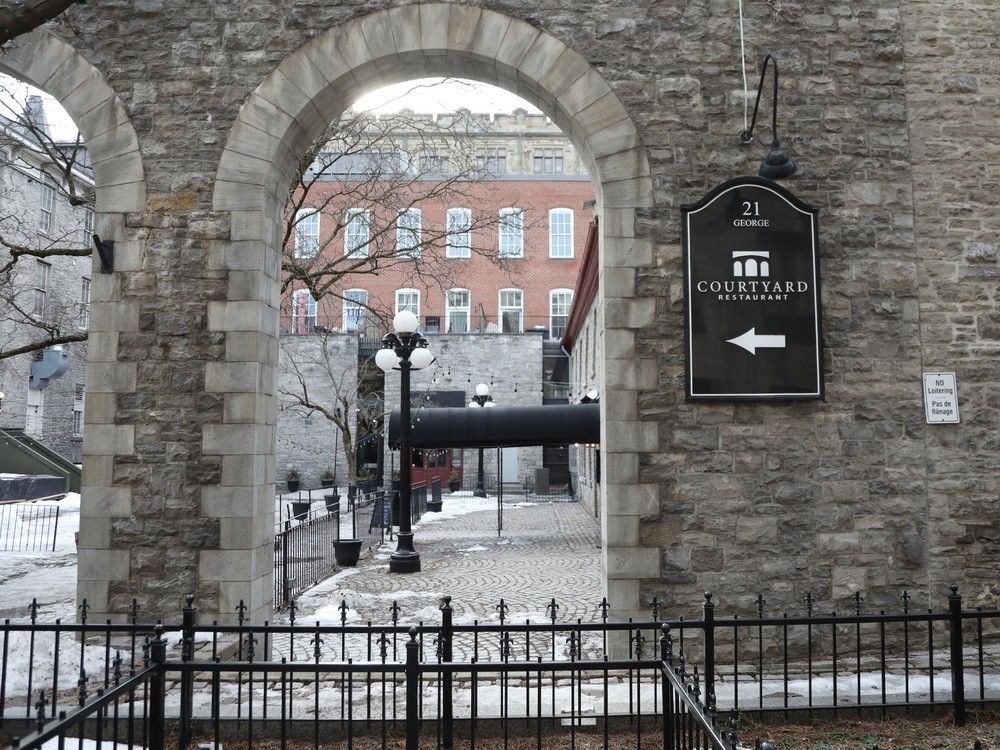Published Sep 05, 2024 • 4 minute read

On Saturday, in Brazil, X (formerly Twitter) was banned after what appears to have been an Epic Rap Battle between Elon Musk and a Brazilian Supreme Court Justice.
Alexandre de Moraes had ordered Musk to suspend over 100 accounts on his platform, calling his order a “battle against misinformation, hate speech and attacks on democracy.” Musk refused, accusing Moraes of “censoring conservative voices online.” Notably, the accounts Moraes wanted suspended just happened to support Brazil’s former president, Jair Bolsonaro, with some questioning his loss in the last election. In retaliation, Moraes made Musk a subject of a Brazilian “fake news” investigation.
Advertisement 2
THIS CONTENT IS RESERVED FOR SUBSCRIBERS
Enjoy the latest local, national and international news.
- Exclusive articles by Conrad Black, Barbara Kay and others. Plus, special edition NP Platformed and First Reading newsletters and virtual events.
- Unlimited online access to National Post and 15 news sites with one account.
- National Post ePaper, an electronic replica of the print edition to view on any device, share and comment on.
- Daily puzzles including the New York Times Crossword.
- Support local journalism.
SUBSCRIBE FOR MORE ARTICLES
Enjoy the latest local, national and international news.
- Exclusive articles by Conrad Black, Barbara Kay and others. Plus, special edition NP Platformed and First Reading newsletters and virtual events.
- Unlimited online access to National Post and 15 news sites with one account.
- National Post ePaper, an electronic replica of the print edition to view on any device, share and comment on.
- Daily puzzles including the New York Times Crossword.
- Support local journalism.
REGISTER / SIGN IN TO UNLOCK MORE ARTICLES
Create an account or sign in to continue with your reading experience.
- Access articles from across Canada with one account.
- Share your thoughts and join the conversation in the comments.
- Enjoy additional articles per month.
- Get email updates from your favourite authors.
Article content
The battle concluded with X’s legal representative fleeing Brazil to avoid arrest for not complying with secret censorship orders. His fleeing triggered a unanimous ruling in the courts to ban X entirely. Moraes threatened Brazilian citizens with fines of $8,900 per day if they even attempted to use a VPN to access X.
Brazil might be a particularly extreme and heavy handed example of censorship, but governments the world over are attempting to control what can be shared on X or almost anywhere online. Social media platforms have become subject to more and more bureaucratic regulation, calling for censorship of posts that may be perceived as harmful, threatening exorbitant fines for non-compliance, or requesting content that satisfies pre-approved cultural standards.
Nigeria banned X after it removed threats of violence posted by, of all people, the country’s own president at the time, Muhammadu Buhari. India has threatened to detain or arrest employees of X if its legal demands were not met. Service has since been re-established in both countries, with Nigeria and India forcing the platform to have legal representatives in both countries. There is, of course, a non-zero chance they too will need to flee at some point.
By signing up you consent to receive the above newsletter from Postmedia Network Inc.
Article content
Advertisement 3
Article content
The Twitter Files uncovered so many levels of American government requesting information be taken down from Twitter that a formal system had to be created to manage such requests.
The UK’s recently passed Online Safety Bill, yet to be implemented, will give media regulator Ofcom punitive powers and the ability to levy massive fines on platforms that fail to police and report hateful content to their satisfaction.
To aid in this enterprise, a complainant can visit the easy-to-remember website www.report-it.org.uk and report hate under various categories, including disability, race, religion, sexual orientation, transgender, and others, provided a perpetrator is perceived to have been “hostile” in some way towards a person in one of these communities or the entire community itself. In fact, reporting others for possible hate crimes in the UK has never been easier, as the site “Stop Hate UK” has launched a handy app for your phone so you can report hate crimes on the go.
Of all the countries hopping on the government regulation of the internet bandwagon, Canada might be the most devoted.
Advertisement 4
Article content
The Liberal government’s Online Harms Act, Bill C-63, essentially sets up its own team of legal representatives, including a Digital Safety Ombudsman, a five person Commission, and a Digital Safety Office, all to ensure social media platforms comply with what they have decided is in the best interests of Canadian citizens. Platforms will have to hand over their Digital Safety Plans, detailing how they will mitigate Canadians’ risk of exposure to harmful online content, keeping us children safe.
While the bill includes a number of provisions to protect actual children, and legislation of acts most Canadians would agree are heinous, like intimate content distributed without consent, it also includes acts that may be more difficult to assess, such as content that foments hatred. Under proposed amendments to the Canadian Human Rights Act, anyone can file a complaint against anyone else for posting allegedly hateful content. A committee will get to decide if what was posted fomented hatred, and issue fines of up to $50,000. Anyone who wants to be on such a committee probably shouldn’t be the person making those decisions.
Advertisement 5
Article content
And the Liberal agenda of trying to control the internet goes well beyond “online harms.” It has also decided to micro-manage our content producers to ensure they meet obscure mandated cultural standards through the Online Streaming Act. Passed last year, the legislation requires various content producers to register, and then set out to ensure that content producers are filling Canadians’ web browsers with material they deem is “varied and comprehensive, providing a balance of information, enlightenment and entertainment for people of all ages, interests and tastes” and reflecting “equal rights, the linguistic duality and multicultural and multiracial nature of Canadian society and the special place of Indigenous peoples and languages within that society.” Yes, Mom.
As an indirect result of the Liberal government’s actions, specifically passing the Online News Act, Canadians have been unable to read news on Facebook or Instagram since August, 2023. The Liberals thought they could use the act to force Meta to pay news publishers for articles shared by Canadians on its feeds. Meta, seeing which way the wind was blowing with our increasingly bureaucratic government, refused.
Brazil wanted to censor Twitter. Does Trudeau dream of the same? Given how enthusiastically he enjoys bogging down the internet in regulations, he’d probably relish the opportunity, if given the chance, to have more direct censorship powers.
National Post
Article content
.png)
 2 weeks ago
11
2 weeks ago
11






























 Bengali (BD) ·
Bengali (BD) ·  English (US) ·
English (US) ·